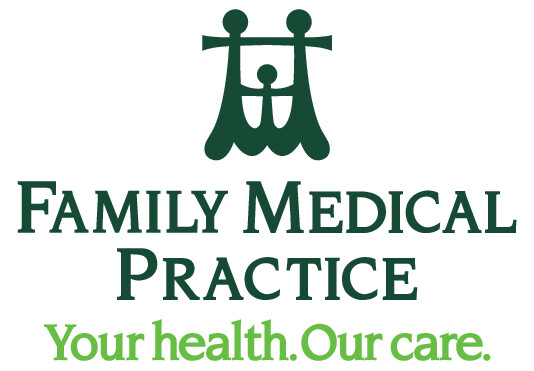 Life & Style
Life & Style

.jpg) |
Dr. Mattias Larsson*
The other day I had a two-year-old patient coming in for an examination with a respiratory tract infection.
The mother said that the child had started kindergarten in the autumn and had been almost constantly sick. They had visited several small clinics and big hospitals where they received antibiotics every time.
On average, the child had taken antibiotics twice monthly for the last six months. The mother expressed concern that the child had been treated with antibiotics too much, but it was hard for her to question the doctors, so she followed the prescribed treatment.
When I examined the child, I found he had a common cold and did not need antibiotics.
I first came to Việt Nam in 1997 and did my PhD on antibiotic use and resistance. In 1999 we did a study to assess respiratory bacteria among children in Hà Nội’s Ba Vì District. The vast majority, 75 per cent, of the children had used antibiotics in the month before the study, most caretakers had self-medicated their children with antibiotics bought from pharmacies.
Upper respiratory tract infection is the most common reason children visit primary care. Preschool-aged children have an average of 6–10 respiratory tract infections per year that can last for one or two weeks.
Respiratory tract infections are almost exclusively caused by viruses and are most common during the cooler months. However, antibiotics are often prescribed, although they do not affect viral infections. When treated with antibiotics, the normal intestinal bacterial flora is affected, which can cause diarrhoea and poor digestion.
So why are so many antibiotics prescribed, dispensed and used when unnecessary? The main reason is the lack of diagnostics. Instead of thoroughly examining and taking appropriate tests, antibiotics are prescribed “in case there is a more severe infection”.
There is also a common belief that antibiotics are necessary for any infection. Whenever people visit the doctor, they get antibiotics prescribed, which has become something that patients expect. Patients even get displeased when not receiving a prescription for antibiotics, so sometimes doctors prescribe them to meet those expectations – a vicious circle.
 |
| Dr. Mattias Larsson. — Photo courtesy of Family Medical Practice |
But as well as diarrhoea and poor digestion, there is a severe danger of overusing antibiotics.
When bacteria are exposed to antibiotics, some mutate and can inactivate the antibiotics! Those resistant bacteria survive and thrive, and, as a survival strategy, they start replicating resistance genes and share these with other bacteria, just like computer programmes.
“If you give me a shield, I give you another one, and we both are better protected”.
The main problem is that antibiotics are necessary for the healthcare system to work properly.
Child mortality in Việt Nam decreased from about 200 of 1000 children under the age of five in the middle of the last century to 20 today, which would not have been possible without antibiotics, vaccination, improved hygiene and nutrition.
Also, advanced medical care, such as transplantation and cancer treatment, would not be possible without functional antibiotics.
The tragedy of the commons is when a common asset is overused and destroyed, a situation in which individual users, who have open access to a resource act independently according to their own self-interest and, contrary to the common good of all users, cause depletion of the resource.
The most prevalent analogy is shared grazing of common land where the land is depleted. Antibiotics are such a common resource. While working with and in Việt Nam, I have seen this depletion of antibiotic effectiveness play out in Việt Nam and globally, but more rapidly in settings with high levels of unindicated antibiotic use.
I have been working with Vietnamese hospitals to assess hospital-acquired infections (HAI), infections patients acquire during their hospital stay. Some of these HAI are caused by “superbugs” that have become very difficult to treat with antibiotics. It is estimated that more than 50,000 persons in Europe die each year from “superbug” infections – while they are much less prevalent and not as resistant compared to Việt Nam.
Can we do anything about the overuse of antibiotics and the spread of “superbugs” in the community? Some evidence-based methods are: antibiotics by prescription only, following international evidence-based research and guidelines, applying simple diagnostics such as full blood count and CRP that can differentiate between viral and bacterial infections, refraining from using antibiotics for simple cold and otitis and implementing training and empowerment of health and pharmacy staff.
And what can you, as a private person, do? Make sure to go to healthcare facilities that can correctly diagnose diseases and do not prescribe unnecessary medication – there is no need for antibiotics for viral infections. Be constructively critical and ask about diagnosis and treatment. Do not self-medicate, especially not with antibiotics. When in hospitals, check for infection control measures such as alcoholic hand rub and tend to your own hygiene. Family Medical Practice
 |
*Dr. Mattias Larsson is a pediatric doctor at Family Medical Practice and associate professor at Karolinska Institutet and has a long experience in researching infectious diseases, especially antibiotic resistance and hospital-acquired infections, as well as HIV with many articles in peer-reviewed publications and mainstream media appearances. He has worked with the Oxford University Clinical Research Unit, USAID, the Clinton Foundation, and the Ministry of Health of Việt Nam. He is fluent in English, Swedish, Vietnamese, German and some Spanish.
Visit Family Medical Practice Hanoi 24/7 at 298I P. Kim Mã, Kim Mã, Ba Đình. To book an appointment, please call us at (024).3843.0784, or contact us via Whatsapp, Viber or Zalo on +84.944.43.1919 or email hanoi@vietnammedicalpractice.com
FMP’s downtown location in Hồ Chí Minh is in Diamond Plaza, 34 Đ. Lê Duẩn, Bến Nghé, district 1, Thành phố and 95 Đ. Thảo Điền, district 2. Tel. (028) 3822 7848 or email hcmc@vietnammedicalpractice.com